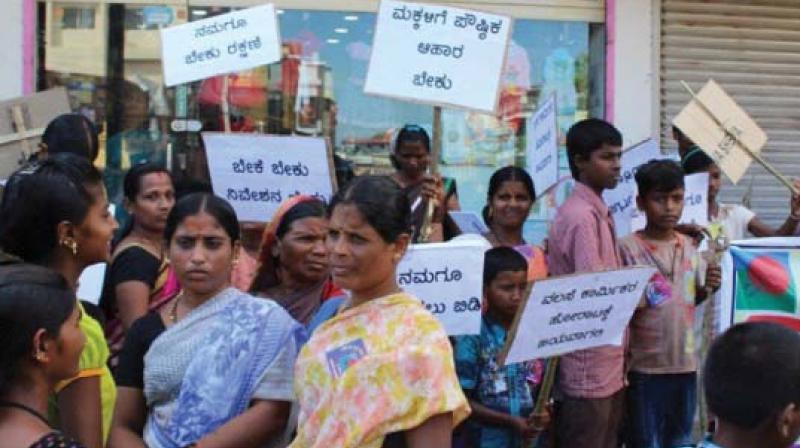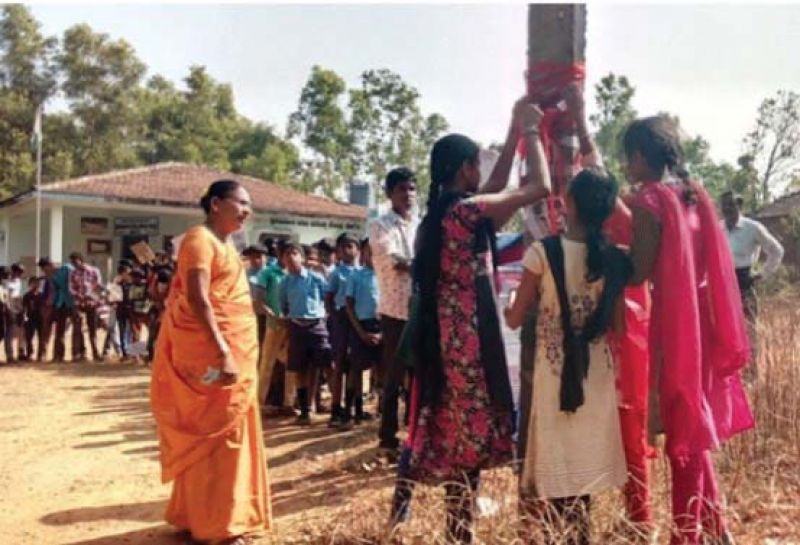CWC's Motto: A dignified life for every child
CWC has since then intensified their journey towards being a widely recognised world leader in children's rights, she added.

For more than three decades the Concerned for Working Children (CWC) has been working towards emancipation of children from weaker sections, with the aim of making them respected citizens.
They also help children establish and maintain a secular, equitable, just and non-discriminatory world with their adult counterparts. The organisation is trying to expand their outreach to four ‘thematic pillars’ child labour, child rights, migrant workers and civil society participation.
Since its inception in the late 1970s, this NGO took form after some members of the then Bangalore Labour Union and from the unorganised sector observed that no labour laws existed to protect child workers, who were employed in huge numbers, but rarely taken into account.

“Our founding members realised that no trade union acknowledged working children and thought of setting up a group to focus on them and their needs from a child rights perspective,” Kavita Ratna, Director – Advocacy at CWC told Deccan Chronicle.
CWC has since then intensified their journey towards being a widely recognised world leader in children’s rights, she added.
Headquartered at L.B. Shastri Nagar, Vimanapura, in the city, this development agency has reached out to more than one lakh beneficiaries directly through field works concentrated in different rural and urban areas within the state.
To enhance its global reach, the NGO has been proactive in capacity building, research and advocacy and lobbying administrations in working towards their ultimate goal of bringing children to the participation forefront.
“Right from a time when such an idea was not as popular as it is in present working in a decentralized manner right from Panchayat levels to the global level partnering with the United Nations, International Labour Organisation, UNESCO, Commonwealth of Nations and more, CWC has made a mark from a local to a global level as part of our continuous and tireless efforts,” Ratna claimed.
Proving their interest and contribution to the sector, CWC is also the first NGO from Bengaluru to be nominated for Nobel Peace Prize. The NGO holds a legacy of being nominated for the same three years consecutively in 2012, 2013 and 2014.
Interestingly, the nomination was filed by three Norwegian parliamentarians who learned about the contributions of the NGO through a blogger from their country who shared what he witnessed while being in India at CWC.
In their nomination letter the MPs mentioned, “The organisation and its network have been pioneers in children’s participation within research, public planning, youth democracy, media and other areas. Few other local organisations elsewhere have contributed as much to this work.”
Over the years, the team of 45 members from different walks of life including mass media experts, anthropologists, sociologists, advocates and social workers has been efficiently involved in various verticals bridging them for an effective result.
Right from citizenship of children and their right to participation to professing education for democracy, empowering the marginalised and their communities and in ensuring a right governance model to make decisions equitable avoiding discriminations, CWC has stayed focused to their contributions to the society.
“While Children Sanghas (Unions) that have been established across villages focus on issues that are of their concern and to bring them to the attention of local authorities, they have also been successful over time to hold elected representatives and government department officials accountable to their work and demands enabling a child-friendly attitude and participatory environment. Simple yet powerful techniques such as the red ribbon-white ribbon social monitoring tool have also been introduced successfully,” the 2017-’18 Annual Report of CWC stated.
“An individual can claim rights offered to him/her only when they are part of the decisions taken for them or else, it is nothing more than welfare,” said Ratna, adding that it is also important to respect the right to information to each child which empowers them to take suitable decisions, also provide them spaces and mechanisms to exercise their rights in a decentralised manner.

